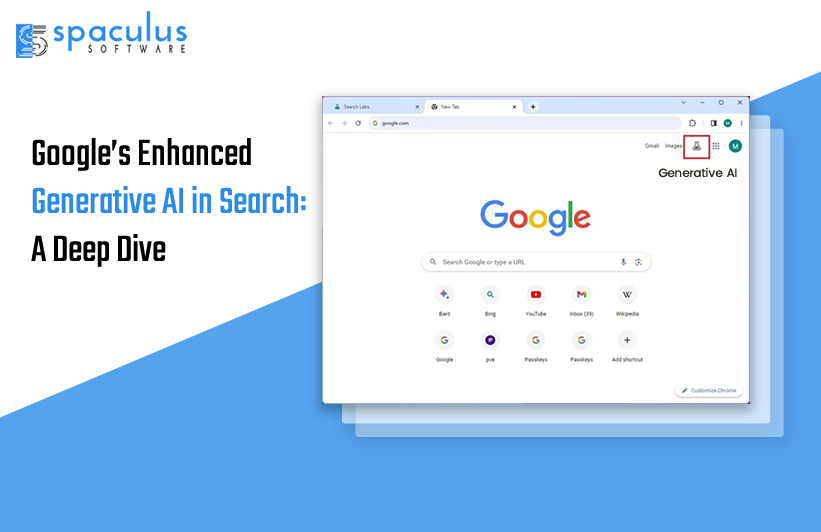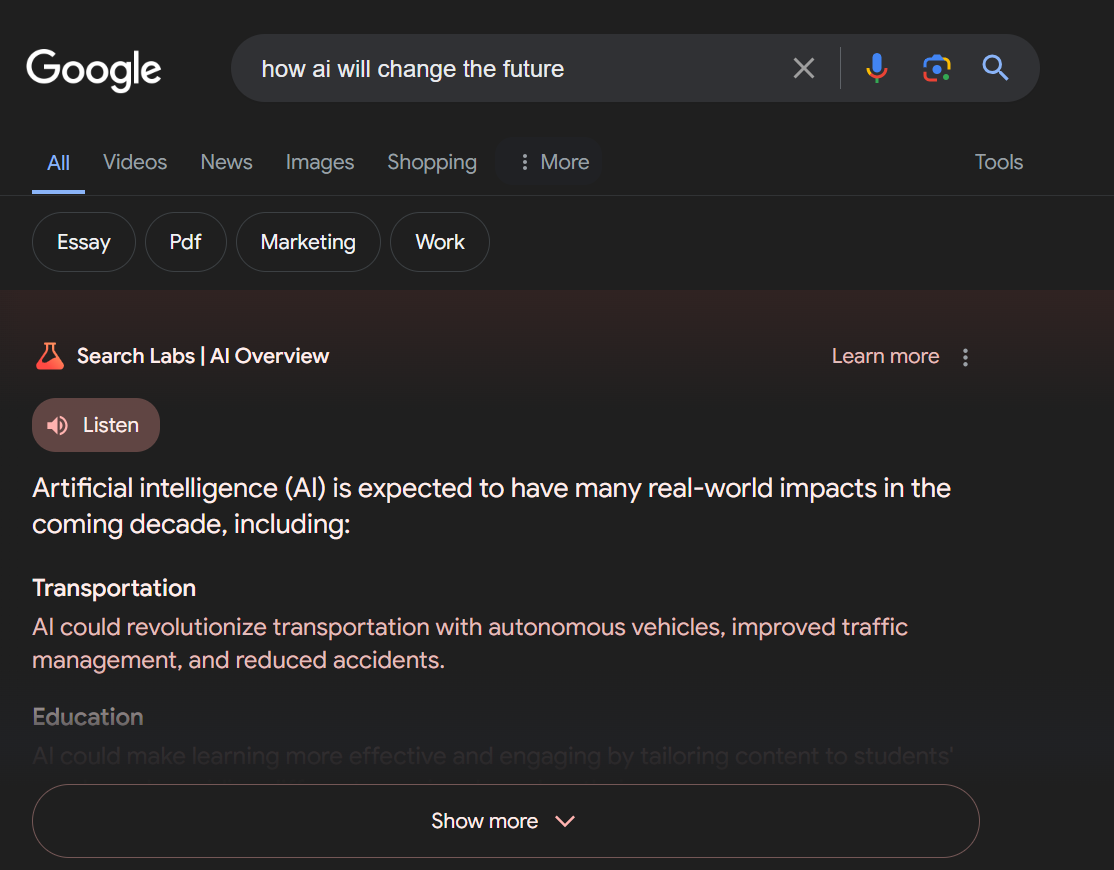
Google has significantly upgraded its search engine using generative AI. These updates aim to make search results more useful, detailed, and easier to understand. Let’s take a closer look at these new features, how they work, their benefits, and any potential downsides
Google now uses AI to create quick summaries at the top of the search results page. These summaries provide the key points of your query, saving you time. Instead of sifting through multiple links, you get an immediate snapshot of the information you need.

Users can adjust these summaries to either simplify the language or provide more detailed information. This is particularly useful for people who may not be familiar with a topic or who need more in-depth knowledge. The ability to tailor these summaries makes them more user-friendly and accessible.
After your initial search, you can ask follow-up questions that retain the context of your previous queries. This feature makes the interaction feel more like a natural conversation. For example, if you search for the best laptops and then ask about their prices, Google remembers the initial context and provides relevant answers. This continuity enhances the user experience by making searches more intuitive and interactive.
Google’s AI can assist in planning meals by gathering recipes from across the web and organizing them based on your preferences, such as dietary restrictions or ingredients on hand. Similarly, it helps with trip planning by suggesting activities, places to visit, and itineraries tailored to your interests and schedule. This feature streamlines the planning process and provides personalized recommendations.
Google is experimenting with AI-generated headlines to organize search results better. This helps users quickly grasp what each result is about, making it easier to find relevant information. By summarizing content into concise headlines, Google aims to improve the efficiency and effectiveness of search results.
The enhancements are powered by Google’s new Gemini model, which combines advanced capabilities like multi-step reasoning and multimodal processing with traditional search algorithms. This model represents a significant evolution in how search engines process and deliver information.
The Gemini model can handle complex queries that require multiple steps of reasoning. For instance, it can assist in planning a multi-day trip by considering various factors like destinations, activities, and accommodations, all within a single query.
By integrating different types of data, such as text, images, and videos, the Gemini model ensures a richer and more nuanced understanding of queries. This capability allows Google to provide more accurate and relevant search results, catering to diverse user needs.
AI overviews drive traffic to a wide range of websites, which means good content is likely to get more views and engagement. High-quality, well-organized content that provides clear answers to common queries will benefit the most from these changes.
The interactive nature of AI-generated content encourages users to spend more time on the search results page. This increased engagement can lead to higher conversion rates and better user satisfaction. Users are more likely to explore multiple links and delve deeper into topics of interest.
Because AI provides quick answers at the top of the search results, users might not click on websites as much. This could lead to a decline in organic traffic for some sites, especially those that rely on click-throughs for revenue.
With AI-driven results, SEO strategies need constant updating. The dynamic nature of AI-generated content requires businesses to continuously adapt their SEO practices to stay visible. This can be challenging and resource-intensive.
Google’s enhanced generative AI in search marks a major shift in how users interact with search engines. The new features aim to make searching more intuitive, efficient, and tailored to individual needs. However, these changes also bring new challenges for SEO.
It’s crucial to focus on creating high-quality content and continuously updating SEO practices. By embracing these changes and leveraging the capabilities of generative AI, businesses can enhance their online presence and better engage with their audience.